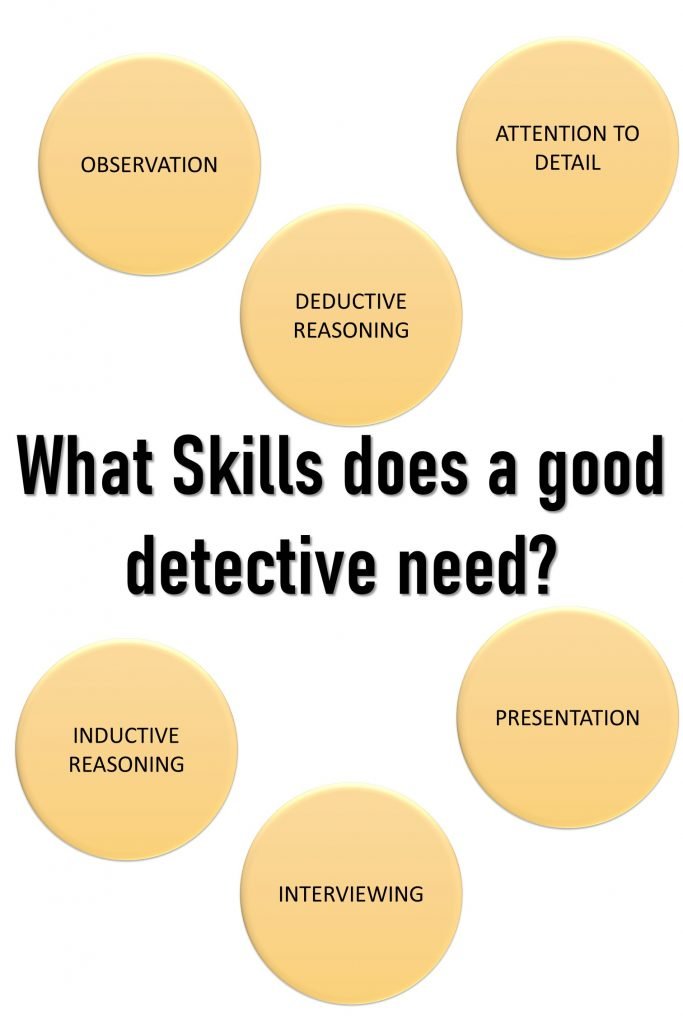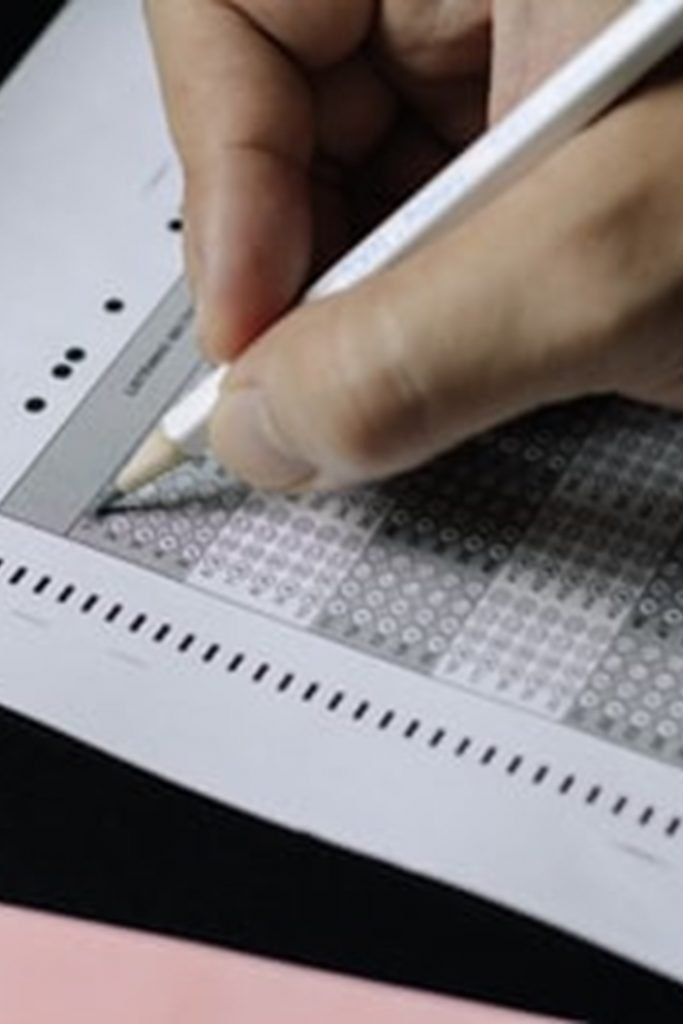When you start a career in policing, you’ll quickly realise how many different roles are involved with policing. Working in the CID is one such role. Each day, you can work with different departments, dealing with a host of different crime types. A career in CID may be a stepping stone to working in different investigative departments, each of these departments includes specialised jobs that require different skill sets, so it’s important to figure out which type of investigative work you’re interested in before you move forward with your career.
In this article, we are going to explore what it is like to work in CID (Criminal Investigation Department), what specific skills set you will need to work in CID, and what doors working in CID may open for you. This way you can decide whether a career in CID is for you.
- CID meaning: What does CID stand for?
- What is difference between Police Officers and CID?
- What is the history of CID?
- The different departments of Criminal Investigation
- CID: What do they do?
- Who should join CID
- How To Become A Detective
- CID Police Training
- What are the ranks in CID?
- Is Being A Detective For You?
CID meaning: What does CID stand for?
At a recent event, we were discussing a career in CID with some perspective police officers. Foolishly, we forgot that policing is full of TLA’s (Three Letter Abbreviations), and for those outside of the policing family, this language can be confusing. CID stands for, ‘Criminal Investigation Department’.
Officers working with CIDs are normally referred to as detectives, or trainee detectives if they are still working towards their accreditation.
How is CID different to ‘policing’, read on to find out more!
What is difference between Police Officers and CID?
‘What is the difference between police officers and CID?,’ is a question that I have personally been asked more than once, so I thought that we should clear this up here.
THERE IS NO DIFFERENCE BETWEEN POLICE OFFICERS AND CID. BOTH ARE POLICE OFFICERS AND BOTH HAVE THE SAME WARRANTED POWERS.
Policing is loosely separated into two stands;
- Operational Policing
- Investigation
CID falls within the latter, as it is an ‘investigation’ department. ‘Operational Policing’, is the term normally used to reference more public-facing roles, such as response policing, neighbourhood policing, and in a tactical role, such as Road Traffic or Armed Response.
More often than not, operational policing roles are referred to as ‘uniformed’ roles, and investigative roles are referred to as ‘non-uniform’ roles. We will discuss this further below.
How can you tell the difference between operation and investigation officers?
The easiest way to tell the difference between operational and investigation officers is that detectives and trainee detectives will normally not wear a uniform, but instead, smart business wear.
This is so when they are conducting enquiries outside of the station they are not easily identified as a police officer.

What is the history of CID?
London’s Metropolitan Police set up a detective branch with around eight plainclothes detectives in 1842, thirteen years after it was initially established in 1829.
This was the pre-cursor to Scotland Yard.
Detective units were established in the City of London Police and in other major cities and towns up and down the country from the mid-nineteenth century onwards.
British colonial police forces all over the world adopted the terminology developed in the UK in the 19th and early 20th centuries, and later the police forces of those countries often retained it after independence.
The different departments of Criminal Investigation
Detectives work in a number of different departments. Some examples of the different units in which a detective can work are;
- Murder Squads
- Major Crime Team
- Safeguarding Units
- Internet Sex Offenders
- Internet Crimes
- Organised Crime
- Special Branch
- Anti-Corruption Unit

These are just a few of the different units in which detectives can work. However, for the purpose of this article, we are focusing on the Criminal Investigation Department (CID). Most Forces will have a CID in a similar guise to what we are discussing here.
CID: What do they do?
The Criminal Investigation Department (CID) is a branch of the police which is mostly concerned with major crimes, although, the reality is that CIDs in modern-day Policing deal with what Policing calls, PiP 2 offences.
The job of these officers is to investigate serious crimes in a methodical and systematic way. Most of the CIDs duties are carried out by the detectives and therefore the CID is usually headed by a detective chief inspector (DCI).
Criminal investigation, the ensemble of methods by which crimes are studied and criminals apprehended. The criminal investigator seeks to ascertain the methods, motives, and identities of criminals and the identity of victims and may also search for and interrogate witnesses. Taken from Britannica
Who should join CID
A career in criminal investigation is a great way to help make your community a safer place to live. However, it is important to understand that while a lot of the job is about following a paper trail, it is also very much an in-person job. While investigating a case, you might spend many days at the crime scene or in the court, at the other end of the investigation.
Here we will go through some of the key skills you need to become a detective. If you have these skills already or are interested in developing these skills, a career as a detective may be for you.

What skills will you need to become a good detective?
You do not need any specific educational qualifications in order to become a detective. However, there are a number of skills you will need to have or be willing to develop, in order to become a good detective.
Having spoken to a number of detectives across a number of different roles, we have summarised the most common skills needed to be a detective.
Observation Skills
A detective’s observational skills are some of their most valuable resources. Unlike murder unit detective colleagues, a CID detective rarely has the luxury of being able to rely on forensics to solve the case.
Instead, he must rely on his keen eyes, his own experience, and even the feeblest of clues to get the job done. The best detectives make use of these skills every day, the smallest thing out of place can be the clue that cracks the case.
Evidence Gathering
As an investigator, the most important thing you can do in any investigation is collect evidence. The evidence you collect can support or refute the investigative theory as well as be used to determine the identity or the means or opportunity to the crime. At every crime scene, you should be looking for evidence that may lend itself to the investigative theory.
It is this evidence that will mean the difference between securing a conviction at court and not. Without any evidence, there will be little likelihood of a suspect being charged with an offence. Although gathering evidence is heavily linked to your observation skills, there is also a tenacity needed in hunting down the evidence you need.
Follow the evidence
Once you have used your observation skills and evidence gathering skills you will need to follow that evidence to the end. What does this mean?
It’s tempting to take people’s word for it when they tell you something. After all, why would someone lie? Even if you have grounds for suspicion, it’s worth looking into something yourself – don’t automatically assume someone is lying or telling the truth, unless there’s clear proof of it.
A good investigator takes a balanced approach, considering what people are saying, why they may be saying what they are, as well as any other evidence that may prove or disprove what they are saying. In policing the term ABC is often used, this means,
- Assume nothing
- Believe nothing (sometimes believe nobody)
- Challenge everything
This does not mean that you call everybody a liar, but instead, if somebody provides you with an account, you do not take that at face value and stop there. Instead, you take this piece of ‘evidence’ that you have been provided and you try and prove or disprove its validity.
ABC: Assume Nothing, Believe Nothing, Challenge Everything
Deductive Reasoning Skills
Deductive reasoning is a method of logical inference that applies deductive logic in order to come to a conclusion. In deductive reasoning, you start with a set of assumptions (premises) and, by applying valid deductive inferences and using established rules of inference and soundness, deduce a logical consequence.
Deductive reasoning is employed in mathematics, philosophy, and formal logic, and it is the fundamental method by which scientific theories are tested and hypotheses are derived. However, this is also used in Policing.
Deductive reasoning is the art of breaking apart an object or event into the fundamental parts of the object or the event. This can be done to a person, a crime scene, or anything else that one wishes to inspect.
In order to do this, you must first gather all the facts (evidence) as discussed above. Once you have done so, you can then begin to look at the circumstances surrounding the facts and determine what is going on and how things happened. At this point, you can take your hypothesis (a scenario that you believe may have happened/fit the evidence as you know it) and begin to examine it, trying to poke holes in it.
You can do this by seeing what the consequences would be if your hypothesis were true, i.e if person A had committed the crime and a specific location at a specific time, they would not have been able to get to location B, whereby they can be clearly seen on CCTV at a specific time. If you determine that the consequences are not logical, then you have disproved your hypothesis and can move on to another scenario.
Inductive Reasoning Skills
An inductive reasoner is somebody who is able to draw conclusions from the evidence available to them. Having developed an inductive reasoning skill set, or the ability to reason inductively, is a valuable asset to have in any police officer’s or intelligence officer’s skill set. Being able to draw conclusions based on what you have witnessed or learned, or what you have seen others do, helps you to make educated guesses about what’s going on around you.
Interviewing Skills
In the police world, the interview is a vital element in solving a crime. An interview is when you ask questions of a suspect or witnesses about a crime in order to obtain evidence that will help you prove a case.

Many police officers and detectives consider interviewing a suspect to be one of the most stressful parts of the job, but it doesn’t have to be. In fact, a well-planned and executed interview will lead to a quicker, and more successful resolution of a case.
These interview skills will be taught to you during your initial police training, and they will be further honed through your specific detective training.
The best interviewers are able to get witnesses to open up and reveal information they didn’t even know they knew, as well as getting suspects to feel comfortable enough to start talking and reveal information they potentially did not want to.
Therefore, communication and interpersonal skills are essential to becoming a good detective.
Attention to Detail
It is unarguable that attention to detail is an essential skill for a good detective. This starts with the attention to detail at the beginning of the investigation, when evidence is being gathered, right through the investigation.
No detective will argue that there is a vast amount of paperwork to be completed throughout an investigation. This is by far the hardest bit of the role. Police officers are governed by the rules of CPIA (Criminal Procedure and Investigations Act 199) and as such are required to document everything.
These recordings then have to be disclosed during the court case. A good defence solicitor or barrister’s easiest line of attack is not in proving the innocence of their client, but instead by picking holes in the case that the officer has put forward. This means scrutinising the paperwork for any errors.
Therefore, it is essential for a detective to have a good attention to detail.
Technical Skills
Is it a reality in modern-day, that a lot of crimes are committed over the internet, or at least, are enabled by technology. Understanding how this technology works is often key to understanding and solving a crime.
Having the ability to understand this can be key to becoming a successful detective.
Presentation Skills
As a police officer, you’re required to attend court. This is part of the job description. The most common part of court work that you may be required to do is present information in court. To be a good presenter, you need to be well prepared; knowing your case, so you can answer any question that you are asked.
As a detective, you are more likely to be called to court, due to the nature of the crimes that you will be dealing with.
You’ve learned what skills are needed in order to become a detective, if this is something you are interested in, we will move on to looking at the stages involved in becoming a detective.
How To Become A Detective
In most forces officers have to complete their 2-year probationary period before they can be considered for a post within the CID.
Adverts are normally placed for people interested in becoming a detective. There may be an application process, such as an expression of interest, or you may have to provide an example of when you have conducted a thorough investigation. This should be evidence that you are not only interested in investigation, but are also capable of conducting a quality investigation.
There may also be the opportunity to join a prisoner processing team if your force has one. Prisoner processing teams, may have different names in different forces, but essentially, they deal with the PiP 1 level offenders that have been arrested; i.e low complexity crimes.
A lot of officers will use this as a ‘testing’ or a ‘training’ ground, in order to see if becoming a detective is for them or, if they are clear that a career as a detective is for them, this is the perfect opportunity for them to showcase their skills, ready for when a vacancy comes up in CID.

Do I Have To Pass Any Exams To Become A Detective?
In order to become a qualified detective, you will have to pass your National Investigators Exam, also known as the NIE. This is an exam that is normally run twice a year.
The NIE checks your knowledge of crime and the procedure surrounding the investigation of crime.
You will study for the NIE in your own time; therefore, you can pace your learning to suit yourself.
Fast Track Detective Constable
The traditional route to becoming a police detective sees officers spend over two years in a uniformed response role before being able to be considered for a detective role.
The Fast-Track detective scheme allows officers to join the police and specialise as a detective constable relatively quickly. Normally, officers would spend their first 90 weeks as a front-line officer, before being allowed to specialise. The Fast Track detective scheme allows officers to become a detective in approximately 42 weeks.
How To Become A Homicide Detective In The UK
A lot of people who are wanting to become a detective ask the question, ‘How do I become a homicide detective?’. This is what people tend to see on the TV and as such, what people want to do. In order to join any specialist investigation unit, most officers will need to become a detective in ‘mainstream’ CID and become qualified as a detective before becoming specialised such as a homicide detective.
CID Police Training
Officers receive investigation training during their initial training as a student officer.
After passing the NIE an officer will be placed in a CID role. The officer will undertake a specialist investigation course, which will dive deeper into more complex interview and investigatory techniques. On completion of this training, an officer will become PiP Level 2 qualified. This means that officers are trained in more complex interview techniques, meaning they can interview for more complex matters.
Officers will then complete the Initial Crime Investigation Development Programme (ICIDP) Portfolio, over the next two years. The ICIDP is a record of competence in the role of a detective constable.
During this period the officer will have a mentor, who will be there to support them through the process. They will also have an assessor, who will assess the evidence provided by the officer.
Completion of specialist investigation course and the ICIDP Portfolio leads to confirmation of detective accreditation; this accreditation will stay with the officer throughout their career.
This accreditation is an internal accreditation, however, if an officer is wanting to transfer force the accreditation, once completed will transfer with the officer.
What are the ranks in CID?
Will I get paid more as a detective?
Being a detective working in CID, you will be expected to think out of the box and solve complex and difficult cases. However, the pay is no different from that of your operational policing counterparts.
The only difference may be, that overtime may be more readily available in detecting roles, meaning that the potential to earn money may be greater, but there is no guarantee.
If you are interested in Police Officer Pay Scales, check out this article, which will take you through what you can anticipate earning at each rank.

Which is the highest post in CID?
Detective Superintendent is the highest rank within CID.
The Detective Superintendent is in charge of the Detective Chief Inspector, who supervises Detective Inspectors, who, in turn, will supervise a number of Detective Sergeants followed by Detective Constables.
This is the same rank structure as the ‘operational’ or ‘uniform’ counterparts.
If being a detective does not sound like something you would be interested in, maybe you will be more interested in a uniformed role such as armed policing?
Is Being A Detective For You?
Here you have been taken through a tour of what CID does, what skills and abilities would mean that you are suited to a role in CID and, if you decide this is for you, what ongoing training you will receive. The only question now is, ‘Is a Career in CID for you?’.





Hiya,
I’m very interested in becoming a part of CID. I’m looking for a route that doesn’t mean I have to go to university, but I’m wondering if I can also do this without doing a normal policing apprenticeship or something along those lines. Is there anyone who would be able to answer my questions and help me find a route to be able to become a part of CID and maybe explain to me in detail how to do this! Thank you so much.
Hannah Grace
Hi, thank you for your question. At the moment entry routes into policing are under review. From what I’ve read and heard, there will be entry routes into policing that do not involve completing a degree. It’s looking like we could be returning to that model as soon as next year. From here you will have to do your two years on the front line, then you will be able to apply for investigation roles, such as CID. I hope that answers your question, and best of luck. Please keep us updated on your journey.
Hi, I do like to to be CID in United Kingdom,
Hi Jamal, that’s great news. Check out some of our other articles on joining the UK police. Best of luck in your future career.